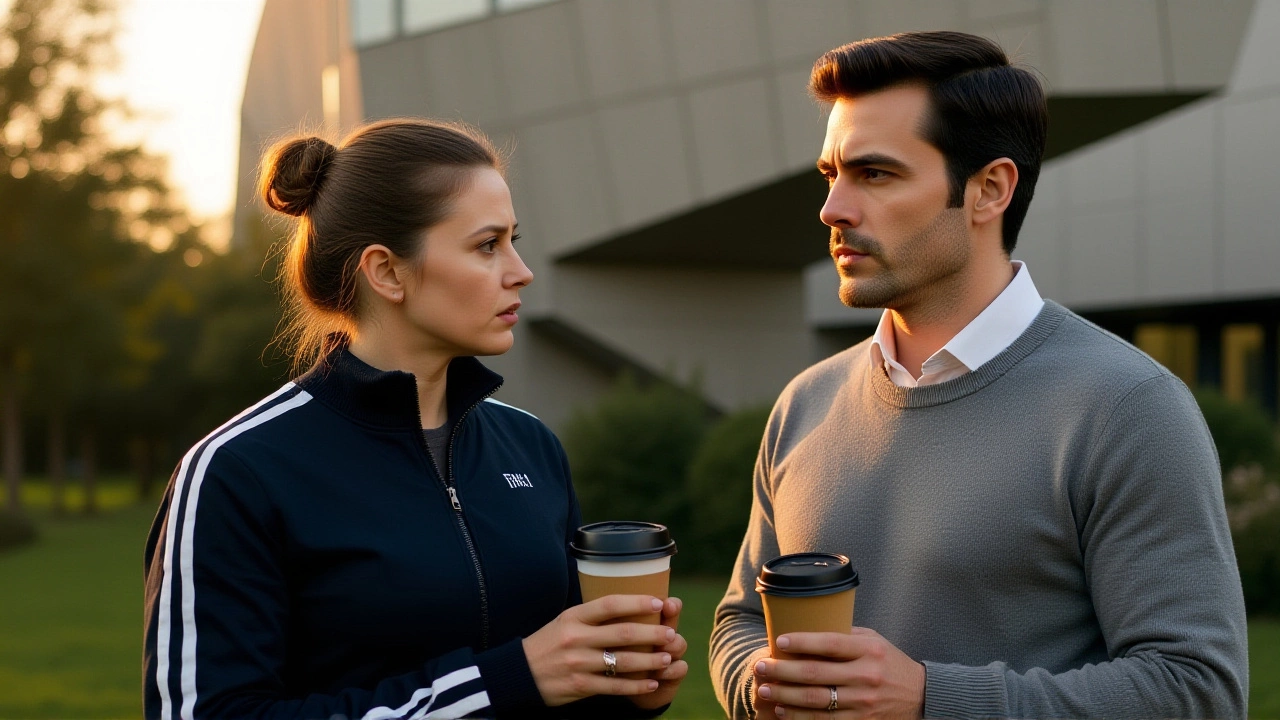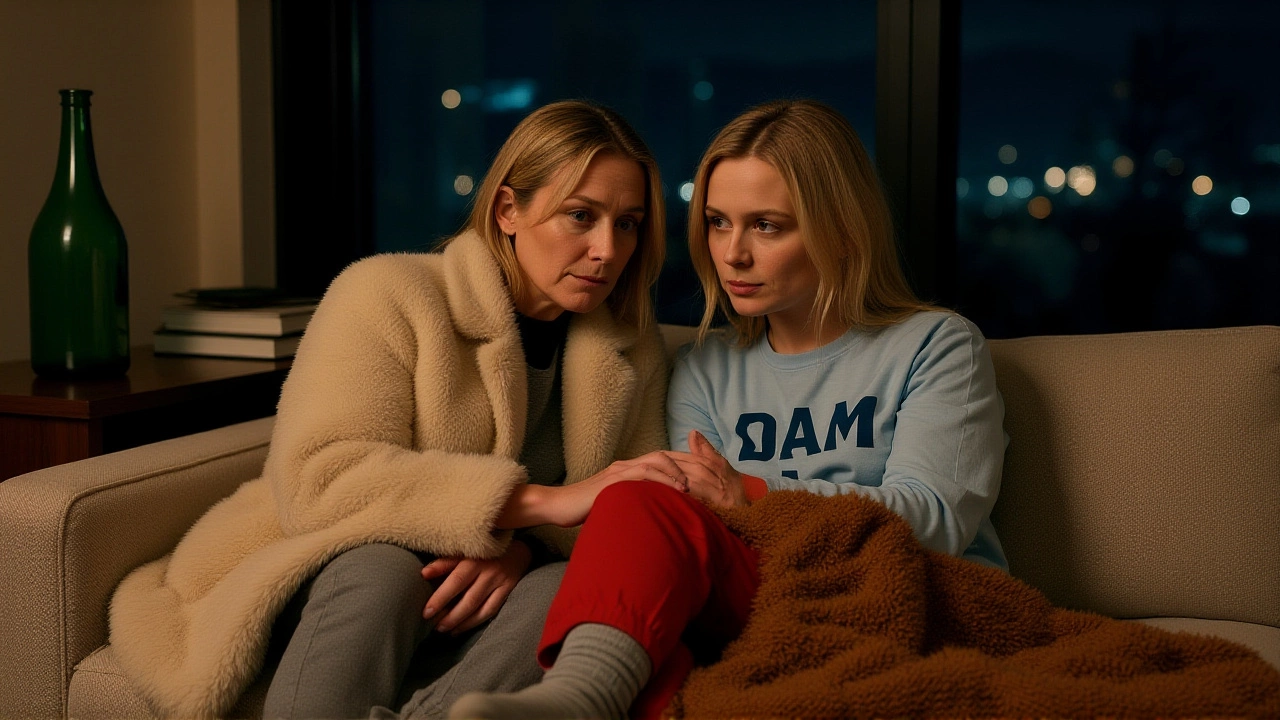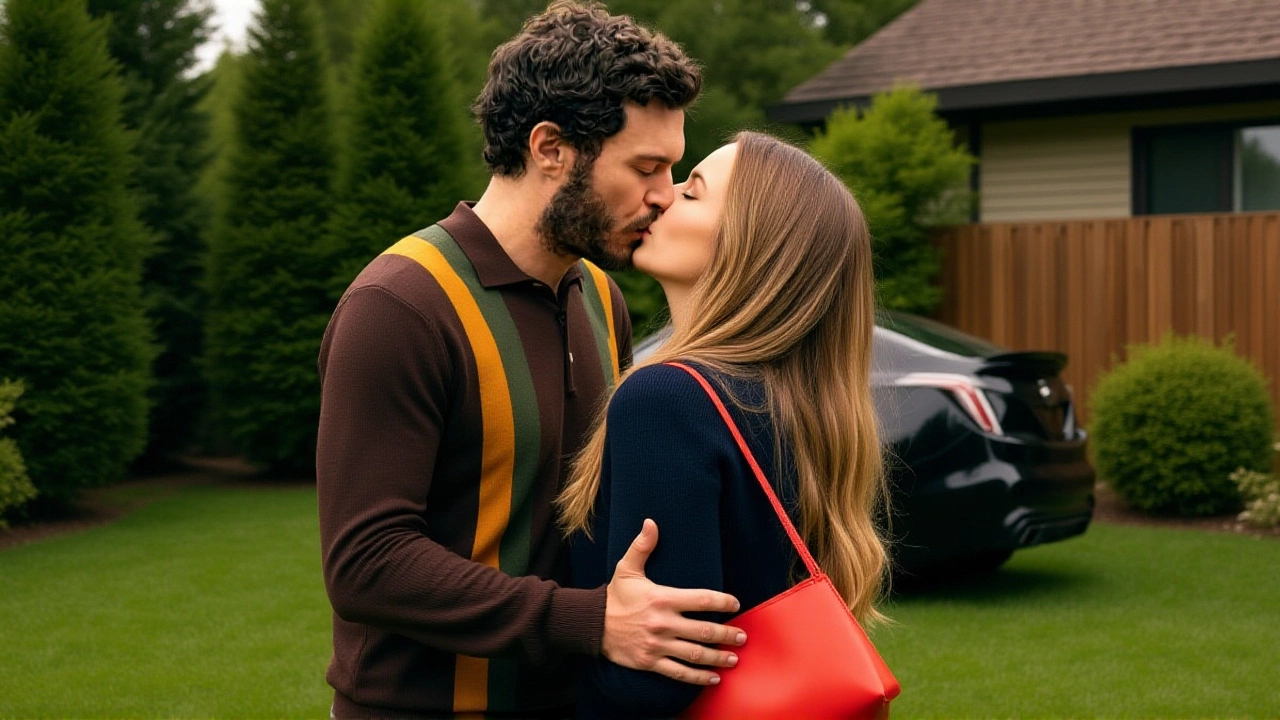Netflix's 'Nobody Wants This' Season 2 Stumbles on Jewish Representation
When Netflix rolled out the second season of its rom‑com series Nobody Wants This in early October 2025, the streaming giant expected another binge‑worthy hit. The reality, however, was a mixed bag: critics praised the show’s pacing while cultural commentators slammed it for half‑hearted attempts to fix antisemitic tropes that plagued its debut.
The controversy first erupted after the first season aired in 2024, when several Jewish advocacy groups pointed out that the series leaned on stereotypes—most notably the “overbearing Jewish mother” and a caricatured shtetl backdrop. In response, the show’s creators promised a more nuanced portrayal in the follow‑up.
Background: A Hit Series Meets Activist Scrutiny
Created by Studio Bellevue, the series follows the tangled love lives of a group of New York City millennials, with one of the main characters, Leah Goldstein, marketed as the show’s “Jewish heroine.” While the first season pulled in an estimated 12 million global households according to Netflix’s internal reports, it also ignited a firestorm on social media.
Jewish media outlet The Forward published a scathing analysis in March 2024, citing scenes where Leah’s family was reduced to punch‑line fodder. The piece sparked a broader debate about how mainstream platforms handle minority representation.
Season 2 Rollout and Critical Reception
Season 2 premiered on October 5, 2025, during a modest launch event held at New York’s Tribeca Film Center. The event featured a panel that included the show’s showrunner, Mira Patel, and co‑star Jordan Lee. Organizers promised “greater cultural authenticity” and highlighted new writers hired from the Jewish community.
In practice, the season offers tighter story arcs: Leah grapples with a career decision that pits her family’s expectations against her own ambitions; a subplot introduces a Shabbat dinner that feels more authentic than before. Yet, as Simi Horwitz of The Forward observes, the changes are largely cosmetic.
“Season 2 attempts to address criticisms of antisemitic tropes without taking any of them to heart,” Horwitz writes, noting that the show still relies on the “Jewish mother” gag in episode three.
Conversely, the aggregator Rotten Tomatoes gave the season a 78% audience score, praising its “fine line between tension and feel‑good moments.” The site’s summary reads: “Season 2 successfully walks the fine line between providing tension and feel‑good moments, and twists and predictability in the ways you would want it to.” No specific critic rating was disclosed, but the consensus suggests many viewers are satisfied with the show’s entertainment value.

Divergent Reviews: Cultural Lens vs. Pop‑Culture Metrics
The split between The Forward and Rotten Tomatoes highlights a deeper divide in how media is evaluated. Rotten Tomatoes aggregates user sentiment and mainstream critic scores, focusing on narrative pacing, character development, and overall enjoyment. The Forward, on the other hand, weighs the responsibility of representation and cultural impact.
When asked about the backlash, Netflix spokesperson Laura Chen said, “We’re listening. Our goal is to tell stories that resonate universally while honoring the specifics of each community.” The statement, however, did not reference any concrete steps beyond hiring a sensitivity consultant.
Why Jewish representation Matters in Mainstream Media
Experts argue that the stakes are high. Dr. Aaron Goldberg, professor of Media Studies at Columbia University, comments that “when a global platform like Netflix gets a Jewish narrative wrong, it reinforces stereotypes for millions of viewers.” He adds that accurate representation can combat rising antisemitism, especially in the wake of the recent spikes in hate incidents across Europe and the United States.
At the same time, the series’ popularity cannot be dismissed. Advertising analysts estimate that each episode of Season 2 generated roughly $1.2 million in ad‑supported viewership revenue, a figure that underscores the commercial incentive to keep the show on air.

Looking Ahead: Future Seasons and Industry Response
Netflix has announced a renewal for Season 3, slated for a 2026 release. The network says it will continue working with cultural advisors, though specifics remain vague. Meanwhile, advocacy groups like the Anti‑Defamation League have pledged to monitor the series closely, hinting that future seasons could face “public accountability” if representation does not improve.
For now, the conversation around Nobody Wants This serves as a case study: a popular rom‑com can spark serious cultural debate, reminding creators that entertainment and responsibility are increasingly intertwined.
Frequently Asked Questions
How does the show's portrayal affect Jewish viewers?
Many Jewish viewers feel the series perpetuates outdated stereotypes, which can reinforce bias in broader society. However, some appreciate the increased visibility of Jewish characters on a global platform, especially when the narrative includes authentic cultural moments like Shabbat celebrations.
What prompted The Forward to critique the series?
The Forward’s cultural reviewers, led by Simi Horwitz, observed that the first season relied heavily on caricatures of Jewish families. Their October 24, 2025 article highlights that Season 2 makes surface‑level changes but still falls short of genuine representation.
Why does Rotten Tomatoes give the season a positive score?
Rotten Tomatoes aggregates viewer enjoyment and critic assessments that focus on pacing, humor, and plot twists. Their summary praises the show's balance of tension and feel‑good moments, which resonates with a broad audience despite cultural criticisms.
What steps is Netflix taking to improve representation?
Netflix has hired additional Jewish writers and a sensitivity consultant for upcoming seasons. While specific names haven’t been disclosed, the network’s public statements stress a commitment to “listening” and “learning” from community feedback.
Will the controversy affect the show’s future renewals?
Given the strong viewership numbers, Netflix is likely to continue the series. However, sustained criticism could influence creative decisions, as producers may opt for deeper cultural consultation to avoid alienating key audience segments.





